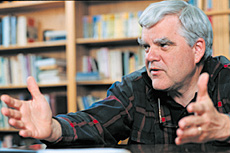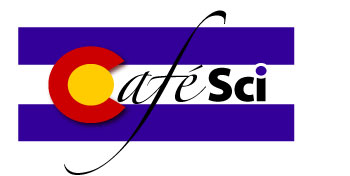|
Clayton Lewis received his Ph.D. in Experimental Psychology from the University of Michigan in 1978, having previously earned B.A. and M.S. degrees in mathematics from Princeton and MIT. He was a research staff member and manager of human factors at IBM's Thomas J. Watson Research Center from 1978 to 1984. He also served as group leader (Software Human Factors) for IBM United Kingdom Laboratories in 1982. In 1984, he returned to academics in the Department of Computer Science, University of Colorado at Boulder. Dr. Lewis' honors include the University of Colorado President's Teaching Scholar award in 1989. In 1999 he was elected Chair of the department, and he had a great time in the job. Dr. Lewis' research has concentrated on reducing the effort required to learn to use computing systems, and especially programming systems. His work has contributed to the development of widely-used user interface evaluation methods, including the thinking-aloud method and the cognitive walkthrough. He is currently Scientist in Residence at the Coleman Institute for Cognitive Disabilities. Clayton's interests include history, model railroading, and devising learning activities for kids. |
 |
About the topic
Computational thinking is a concept about which many people in Computer Science, including their funders at the National Science Foundation, are excited. The idea is that there are certain ways of thinking about problems that have evolved in computer science but that EVERYONE should have a sense of. The premise, as stated by NSF Directorate Head Jeannette Wing: "Computational thinking is a fundamental skill for everyone, not just for computer scientists. To reading, writing, and arithmetic, we should add computational thinking to every child’s analytical ability. Computational thinking involves solving problems, designing systems, and understanding human behavior, by drawing on the concepts fundamental to computer science....Computational thinking is a way humans solve problems; it is not trying to get humans to think like computers. Computers are dull and boring; humans are clever and imaginative. We humans make computers exciting. "
Recommended resources
A basic, readable short introduction to computational thinking, by Jeannette Wing of the National Science Foundation. More challenging, wide-ranging, a great read: The Algorithm: Idiom of Modern Science, by Princeton's Bernard Chazelle. A slide show by Jeannette Wing (the Mother of Computational Thinking) with a lot of interesting detail and ideas.George Mason University's Great Principles of Computing site, a terrific resource. A most amazing video made by a class in Cultural Anthropology at Kansas State: It tells you a lot about college kids today and the role media play in their lives.
|
